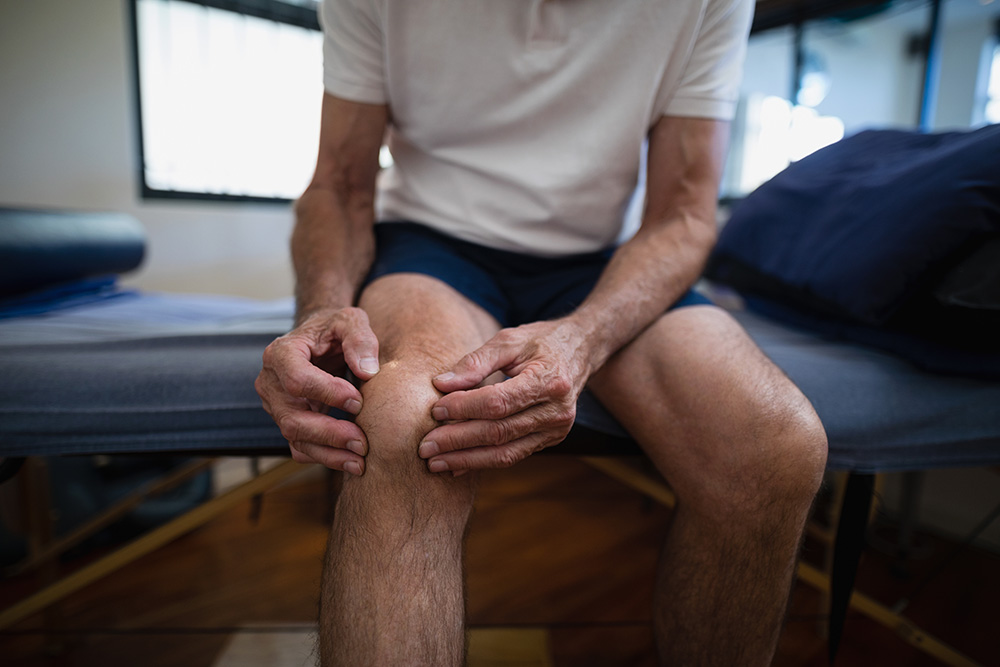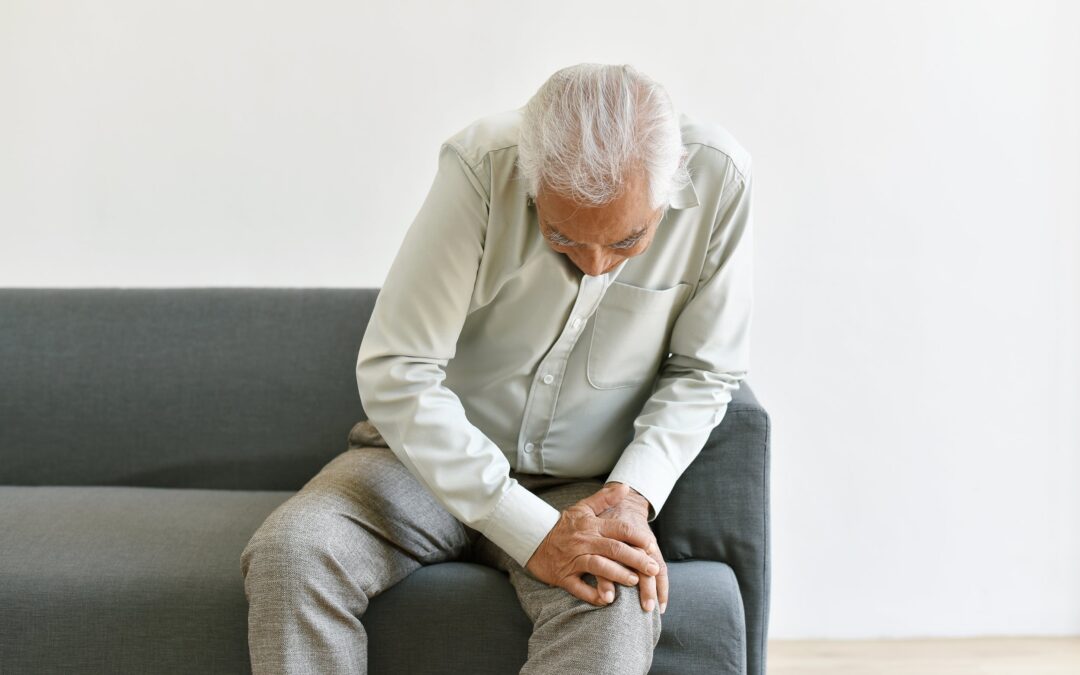Contents
Experiencing arthritis pain and other symptoms? If you have arthritis, finding effective treatment is important. The right treatment approach can be crucial to managing your condition and keeping your symptoms under control. By learning more about the symptoms you might face, you may also get a better understanding of how physical therapy can help.
Arthritis comes in various forms. The term refers to inflammation of the joints, which can be caused by a variety of more specific conditions. Two of the most common kinds of arthritis are rheumatoid arthritis and osteoarthritis. The former is an autoimmune condition where the body attacks itself, causing pain and other symptoms in the joints. The latter can come with similar symptoms but has a very different cause. Osteoarthritis, also known as degenerative arthritis, is caused by the breakdown of cartilage between the bones. Cartilage is important for connecting and padding your joints and bones. When this tissue degenerates, it can cause a plethora of immediate symptoms and long-term complications. Fortunately, management is possible. Physical therapy has proven to be a valuable method for managing and alleviating the symptoms of arthritis. Exploring some of the symptoms that PT helps address can show why it’s a top arthritis treatment option.
Common symptoms of degenerative arthritis
- Joint pain — Joint pain is one of the key symptoms of arthritis. The inflammation in your joints will likely lead to persistent discomfort and sometimes acute pain. Pain from degenerative arthritis is sometimes localized, sometimes widespread. Your joints might feel especially painful when you are in motion. If you are experiencing arthritic joint pain, physical therapy can help. The intensity of your pain will depend on how far your condition has progressed as well as your management strategies. With PT techniques such as targeted stretches and manual therapy, you can alleviate tension and keep your pain levels down. Your physical therapist may recommend some therapeutic exercises you can do at home between visits.
- Swelling — Joint irritation typically comes with swelling. As your joints swell, they can cause discomfort in nearby tissue and make movement more difficult. Joint swelling is often associated with stiffness, another common arthritis symptom. If you have osteoarthritis, you may feel stiff or rigid when trying to move your joints. Joint motion can be especially difficult in the morning after sleeping. Your physical therapist can offer a range of interventions aimed at reducing your stiffness and swelling. Range-of-motion exercises, for example, can play a crucial role in improving your flexibility.
- Tenderness — Have you noticed your joints getting more sensitive? The cause could be arthritis. If you have degenerative arthritis, your joints might feel tender under pressure. The heightened sensitivity that often comes with arthritis can make your joints painful to touch. Your physical therapist can help ease tenderness around your joints. Some of the best treatments for tenderness are focused exercises and massaging techniques. Making your joints more resilient can be a great step as you work to manage your symptoms.
- Weakness and fatigue — When your joints become less stable, you may have more difficulty using your muscles. This can lead to weakness in the muscles around the affected joints. You might start to have trouble with simple strength-related tasks like lifting and carrying things. To minimize muscle weakness, your physical therapist can guide you through personalized strengthening exercises. Like flexibility-focused exercises, these exercises can be crucial for maintaining your physical capabilities. Building muscle can also improve your joint stability, which may help alleviate some of your other symptoms.
- Difficulty walking — Is arthritis affecting joints in your legs or lower back? If so, you might start to experience difficulty walking. Hip joint issues can have a similar effect. If joint pain and stiffness are turning walking into a challenge, finding an effective treatment is important to keep you on your feet. With gait training and tailored balance exercises, your physical therapist can help make walking easier. Other treatments including manual therapy techniques for pain relief can also play a role in improving your ability to walk.
- Muscle spasms — Muscle spasms are involuntary muscle contractions. They often occur when a muscle is stressed, strained or inflamed. As your joint inflammation worsens, it can lead to dysfunction in nearby tissue. The muscles situated closest to your inflamed joints may be the first affected. Muscle spasms are a serious symptom that can contribute to your pain and make movement more difficult. To manage your muscle spasms, your physical therapist can incorporate focused stretches and specialized muscle relaxation techniques into your treatment plan.
What is degenerative arthritis? Is it a disability?
Degenerative arthritis is a complex condition. As a degenerative joint disease, it is characterized by the degeneration of cartilage around the joints. With less cartilage between joints and bones, there is more pressure put on each joint. This can lead to damage and irritation of the joints, which can then lead to many other symptoms. Most of the symptoms associated with degenerative arthritis are rooted in the joint inflammation it causes. Because degenerative arthritis is a chronic condition, some consider it to be a disability. However, this is not strictly the case.
The precise meaning and limits of the term “disability” are often disputed. For a condition to be considered a disability by the Social Security Administration (SSA), it must meet certain criteria. A disability as defined by the SSA is a mental or physical condition that prevents a person from engaging in gainful activity. If your arthritis limits your capacity to complete the daily tasks involved in the average job, you may be eligible for Social Security disability benefits. Your physical therapist can help you determine your functional capacity. In addition to helping you manage your symptoms, PT can also help you adapt your lifestyle to accommodate your changing needs.
Degenerative arthritis of the spine
Osteoarthritis can affect various joints throughout the body. Joints that experience great wear and tear tend to be among the most commonly affected. These include joints in the hips, knees and spine. If you have spinal osteoarthritis, you may experience a range of symptoms including chronic back pain and stiffness around your spine. To address your symptoms, your physical therapist may employ a few different techniques centered on the spine. Manual therapy techniques such as spinal alignment can help reduce friction and help you experience pain relief. Another PT method is a type of traction therapy called spinal decompression. Spinal decompression works to relieve pressure along your spine through gentle stretching on a manual lumbar traction table. By receiving this treatment in conjunction with targeted back exercises and other techniques, you can benefit from a comprehensive care regimen. A well-rounded approach is key to success in treating arthritis.
Is degenerative disc disease arthritis?
The dense terminology around various medical conditions sometimes leads to confusion. Some conditions with similar names are actually very different. An example of this is the difference between degenerative disc disease (DDD) and degenerative arthritis. While degenerative arthritis can affect the spine, it has to do with the joints rather than the spinal discs. Degenerative disc disease is not a form of arthritis. However, it is still a very serious condition. Whether you have DDD or arthritis, physical therapy can be beneficial. With the right treatments, your physical therapist can help you manage your symptoms and improve your overall spinal health.
Manage your degenerative arthritis with help from Lattimore Physical Therapy
Ready to get professional treatment for your degenerative arthritis? At Lattimore Physical Therapy, our team is ready to help you manage your symptoms and lead a balanced lifestyle. We will work with you each step of the way on your wellness journey.
Contact our team today for more information or to schedule an initial appointment.



